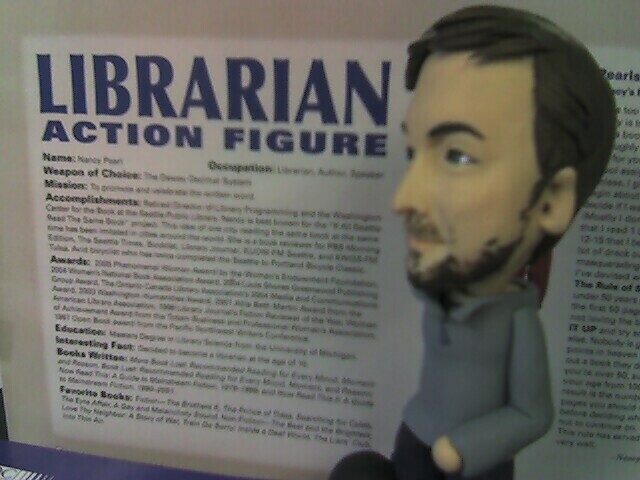These readings hit me hard. While I’m sure I will do some more reflecting in my symposium post, I wanted to write something separate as well, to react to the last few readings on this topic. This is directed not only to our wonderful professor here, Dr. Stephens, but to my fellow students in this class as well, as it would not be as vibrant a community without such an active fellowship.
As I have said elsewhere, I am thankful that Dr. Stephens has created such an open and forgiving space in which we can explore and experiment and discuss without concern for making mistakes. I truly believe his librarian superpower is empathy, getting to know each of us personally, and working with us to become both better librarians and better humans. This class embodies not only the essence of Learning 2.0, but also the environments described by Stephens in both Office Hours posts (2018a, 2018b), as well as Cheetham & Hoenke (2013) – not only should we be making mistakes, but allowing others to see and learn from them.

This course and our hyperlinked community also have built our emotional skills (Gershon, 2017), allowing us to be vulnerable; I’ve shared more personal emotions and experiences through our blog than I’ve ever done in any of my other graduate work. This is primarily because Dr. Stephens has created a community led by kindness (Corkindale, 2011), where his examples of forgiveness about deadlines and stress allowed us to learn at our own pace, and our community discussions through blog posts and group chats made me feel comfortable to be open about what I was experiencing this semester.
While these readings tilted toward emotion and soft skills, I do see how they complete a full circle back to our foundational readings. If we are not reflective about our library and our programs, how can we be the change leaders described by Casey & Savastinuk (2007)? Assessment means being honest in reflection when considering whether a new program or service (or an old one) is working. The confidence described by Sally Pewhairangi (2018a) is what allows librarians to be frank in those assessments, giving them permission to fail – and rebuild stronger libraries and programs in the process.
This class has inspired me to be such a librarian, one that works with her community to create interactive and engaging programs, asking about what more we can do – using emerging technology or simply an amazing staff – to not only enable research on campus but to innovate and inspire others.
References
Casey, M. E., & Savastinuk, L. C. (2007). Library 2.0: A Guide to Participatory Library Service. Information Today, Inc.
Cheetham, W., & Hoenke, J. (2013). Making mistakes in our daily work: A TTW Conversation between Warren Cheetham and Justin Hoenke. Tame the Web. https://tametheweb.com/2013/08/19/making-mistakes-in-our-daily-work-a-ttw-conversation-between-warren-cheetham-and-justin-hoenke/
Corkindale, G. (2011). The importance of kindness at work. Harvard Business Review. https://hbr.org/2011/04/the-importance-of-kindness-at
Gershon, L. (2017). The future is emotional. Aeon. https://aeon.co/essays/the-key-to-jobs-in-the-future-is-not-college-but-compassion
Porter, M. (2006). Librarian action figure [Photograph]. Flickr. https://www.flickr.com/photos/43017881@N00/86206037
Stephens, M. (2018a). Champion of confidence. Library Journal, 143(10), 18.
Stephens, M. (2018b). Librarian superpowers activate! Office Hours. Library Journal, 143(13), 16.